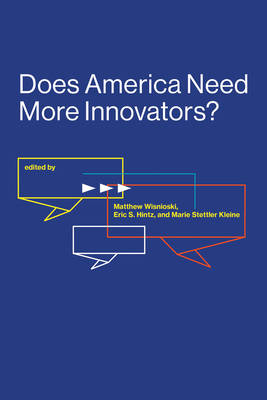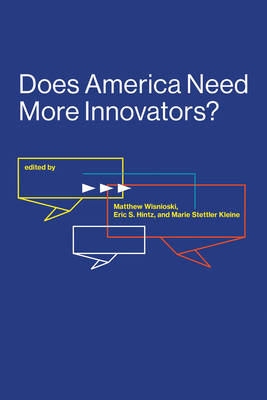
- Retrait gratuit dans votre magasin Club
- 7.000.000 titres dans notre catalogue
- Payer en toute sécurité
- Toujours un magasin près de chez vous
- Retrait gratuit dans votre magasin Club
- 7.000.0000 titres dans notre catalogue
- Payer en toute sécurité
- Toujours un magasin près de chez vous
Does America Need More Innovators?
Description
Corporate executives, politicians, and school board leaders agree--Americans must innovate. Innovation experts fuel this demand with books and services that instruct aspiring innovators in best practices, personal habits, and workplace cultures for fostering innovation. But critics have begun to question the unceasing promotion of innovation, pointing out its gadget-centric shallowness, the lack of diversity among innovators, and the unequal distribution of innovation's burdens and rewards. Meanwhile, reformers work to make the training of innovators more inclusive and the outcomes of innovation more responsible. This book offers an overdue critical exploration of today's global imperative to innovate by bringing together innovation's champions, critics, and reformers in conversation.
The book presents an overview of innovator training, exploring the history, motivations, and philosophies of programs in private industry, universities, and government; offers a primer on critical innovation studies, with essays that historicize, contextualize, and problematize the drive to create innovators; and considers initiatives that seek to reform and reshape what it means to be an innovator.
Contributors
Errol Arkilic, Catherine Ashcraft, Leticia Britos Cavagnaro, W. Bernard Carlson, Lisa D. Cook, Humera Fasihuddin, Maryann Feldman, Erik Fisher, Benoît Godin, Jenn Gustetic, David Guston, Eric S. Hintz, Marie Stettler Kleine, Dutch MacDonald, Mickey McManus, Sebastian Pfotenhauer, Natalie Rusk, Andrew L. Russell, Lucinda M. Sanders, Brenda Trinidad, Lee Vinsel, Matthew Wisnioski
Spécifications
Parties prenantes
- Editeur:
Contenu
- Nombre de pages :
- 410
- Langue:
- Anglais
- Collection :
Caractéristiques
- EAN:
- 9780262536738
- Date de parution :
- 09-04-19
- Format:
- Livre broché
- Format numérique:
- Trade paperback (VS)
- Dimensions :
- 152 mm x 226 mm
- Poids :
- 566 g

Les avis
Nous publions uniquement les avis qui respectent les conditions requises. Consultez nos conditions pour les avis.





